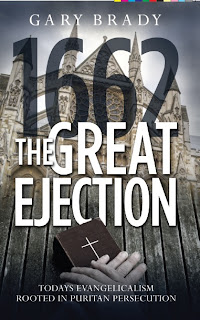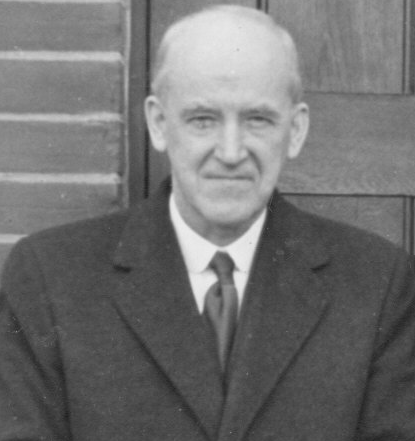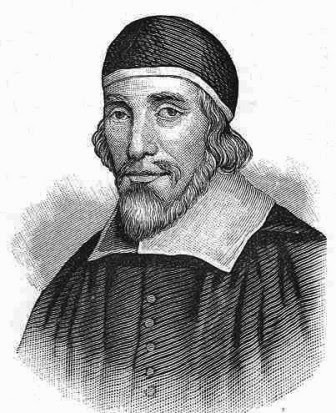From The Annals of Coggeshall
Thomas Browning (c 1634-1685) was born of pious parents at Coggeshall, about the year 1634, and was sent to Oxford at sixteen years of age. Here he "chose the worst companions and despised the best instructions; and after some years left, and became tutor in Col. Sydenham's family. There was so much religion here that he quickly grew weary of it and left, and chose rather to embrace a vain and uncertain course of life." On attending Westminster Abbey, he was greatly impressed by the sermons of Mr John Howe, the pastor; and afterwards of Mr Thomas Weld of New England and Mr Pinchback, assistant of Dr. Thomas Manton. About this time Mr Sames met with him in London, and induced his parents, whom he had estranged by his former life, to invite him and his wife to reside with them at Coggeshall.
He became a member of the church, and was at length encouraged by Mr Sames to devote himself to the ministry, and preached his first sermon on Matt. i. 20 in his pulpit in the Parish Church. Going with Mr Sames to a commencement at Cambridge, they met with Mr Beverly of Rothwell, who was seeking a minister for the adjoining parish of Desborough; and Mr Browning, after preaching there, was invited to become pastor in 1657. Here he continued faithfully discharging his duties for five years.
In all his work he followed the advice once given him by Dr. Owen, " Study things, acceptable words in course will follow." He was ejected among the two thousand, preaching his farewell sermon on 2 Cor. xiii. 14. The people of Desborough and Rothwell gathered together to form one congregation under his ministry, at Rothwell, where he had licence to preach in 1672, and continued during the rest of his life.
"Some soldiers came one Lord's-day, April, 1682, to break up a meeting, and to take Mr Browning of Rothwell. The constable advised them to be well-advised in what they did, 'for,' said he, 'when Sir was alive, he eagerly prosecuted these meetings, and engaged 8 soldiers of the country troop therein, whereof myself was one. Sir himself is dead; 6 of the soldiers are dead; some of them were hanged, and some of them broke their necks; and I myself fell off my horse and broke my collarbone in the act of prosecuting them, and it cost me 30s. to be cured. It hath given me such warnings, that for my part I am resolved I will never intermeddle with them more.' This story he repeated several times that day, which shews how readily conscience, when a little awakened, construes the Divine Providences to be acts of judgment and admonition."*
Mr Browning was on one occasion arrested and imprisoned in Northampton Gaol; from which place he wrote the following with other letters to his church:
"My dear Brethren and Beloved,
"I salute you in the Lord, and make mention of you to him with joy, counting it my most happy lot, next interest in His love, to have so great a share in yours We have peace in the midst of trouble, and quiet in the day of war; because 'this man is our peace even while the Assyrian is in the land.' God has been a little sanctuary to us in our scatterings, and has over-ruled that which was designed for our ruin to our help. O my brethren! methinks I am with you, weeping with you, joying with you, praying with you, and hearing with you. It is true fellowship my soul has with you at a distance. I long after you much in the Lord, yet rejoicingly stay his good pleasure. I would not come out a moment before his time. I would not take a step without his direction. I am wonderfully well; better and better. The cup of afflictions for the Gospel is sweeter the deeper: a stronger cordial the nearer the bottom — I mean death itself. O the joy unspeakable the glorious and dying martyrs of Jesus have had! How full freight have been their souls in their passage to their port! I tell you, if you knew what Christ's prisoners, some of them, enjoyed in their gaols, you would not fear their condition, but long for it. And I am persuaded, could their enemies conceive of their comfort, in mere vexation of heart they would stay their persecutions. 'Therefore, my brethren, my joy and crown, stand fast in the Lord.' Rejoice greatly to run your race: fear not their fear: sit loose from the world: allot yourselves this portion which God has allotted you, through many tribulations to enter into the kingdom of heaven. Come the worst is death, and that is the, best of all ... My brethren, do not budge. Keep your ground: the scripture is your law: God is your king. Your principles are sober, your practices are peaceable. Your obedience to superiors known in those things wherein your obedience is required. If men have nothing against you but in the matters of your God, rejoice and triumph in all your persecutions. . . . I exhort you all to walk in the faith, fear, love and joy of the Lord. Study your mutual edification. Fear nothing of events till they come: only fear offending God with a neglect of your duty. There is no shadow like the shadow of God's wings; therefore keep close to God. Ps. Ivii. 1."
"T. B."
Reference to his death is made in the church-book of Rothwell:
"Mr Thomas Browning, pastor of this church, was gathered to his Father's house in peace, in an awfully persecuting day, May 9, 1685, having served his Lord in this house with much pains and many tears, with much presence and success, about 23 years."
He was buried in Rothwell churchyard, and was succeeded by Mr Richard Davis.**
* Mr Beverly says in his Diary—"1658, May 13. Pretty cheerful till Brother Browning's return from Essex, who told me the sad news (among some other more refreshing) that there was some discord in the New England churches: Mr Stone turned classical. O what a fountain of tears broke my heart forthwith out into, to conceive that Satan should infest those precious churches which the Lord had hitherto so gloriously carried as on eagle's wings."
** Monuments of Mercy, or some of the distinguished favours of Christ to the Congregational Church at Rowel, as handed down in the ministry of Mr John Beverley, and Mr Thomas Browning, remembered. By Matthew Mayrice. London, printed for B. Hett, at the Bible and Crown in the Poultry, near Cheapside, 1729.
Palmer says "His tomb yet remains with a Latin inscription. The late Mr Moses Gregson, who married a descendant of his, communicated to the Editor some extracts from his Diary, which discover an ardent piety."
















.jpg/220px-Thomas_Watson_(Puritan).jpg)
